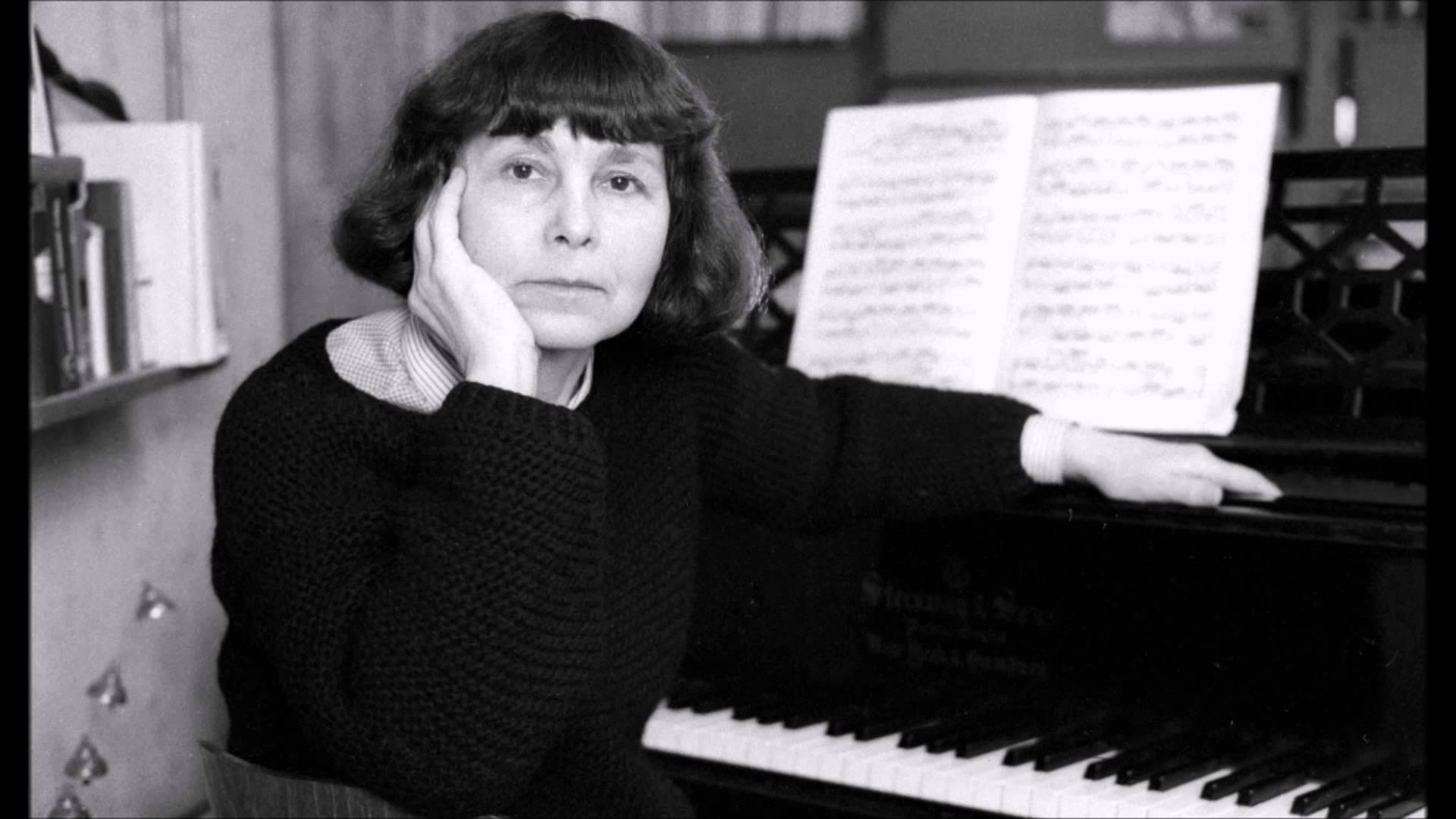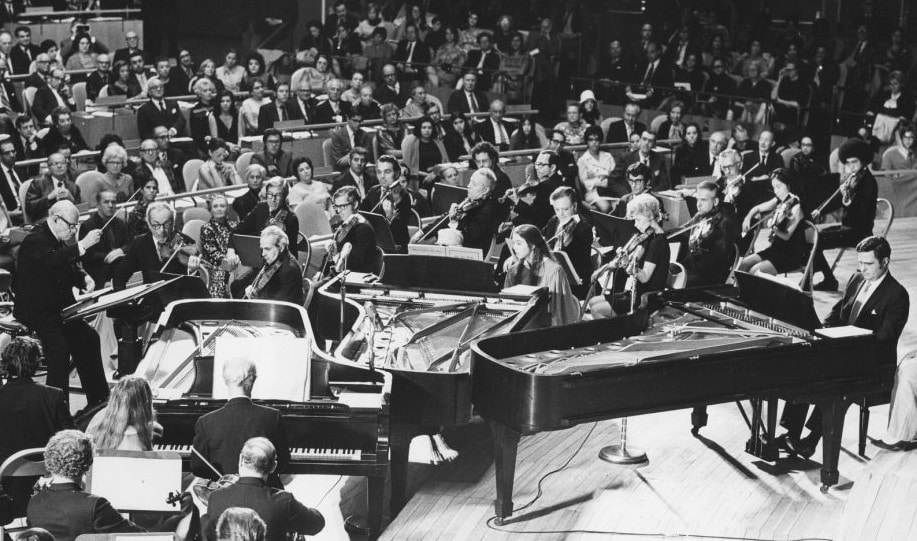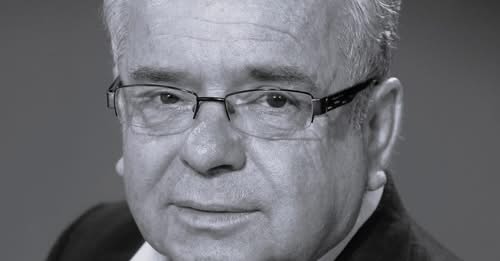Don’t ask why the Russians aren’t coming
mainIn the December issue of The Critic, I examine why the Russian apparat exported only Shostakovich and Prokofiev, to the exclusion of other modern composers.
… At the time I was planning the Other Russia series, many were still alive and eager to participate. The impediment I encountered was no longer Marxism. I discussed the project with four well-known Russian conductors, all of whom spoke warmly of the composers I had chosen and praised their music in great detail — up to the point where I suggested they conduct them, at which point excuses flowed like vodka in a Chekhov dacha. The music was too long, too short, too loud, too quiet, too slow to deliver a climax that might fail to project the conductor as hero.
Musicians assured me it had been just the same back in the USSR. Other than Rozhdestvensky, who stuck his neck out for Schnittke, and Neeme Järvi who carried the baton for Pärt, it was hard to name a single conductor who put new music ahead of self-interest….
Read on here.






You are being unfair to Rozhdestvensky, Sir Norman! He also conducted several of Boris Tishchenko’s symphonies, among which the 4th, a 93-minute leviathan of a score!
You can listen to the B4 here: https://youtu.be/yJhmkB1B_J8
If you can take it in one sitting, you are my hero! It makes the Mahler 6 seem concise.
I could not listen to this more than a couple of minutes – it sounds terribly amateurish and pretentious.
Maybe because Shostakovich and Prokofiev despite the fact of their music being a negation of what classical music is in terms of the spiritual and esthetic aspects, were consummate professionals of the highest order who could often produce what could pass as genuine masterpieces among the public whose values were already sufficiently eroded. As for the rest of the so-called composers, the only people failing to see that those emperors are naked is the rabid far-left audience. The Cold War is over and the only value of Soviet dissident “art” was the political aspect of the heartless, troglodyte Soviet regime refusing to assign equal value to using fists on the piano and Mozart. Now they are utterly useless.
Leopold Godowsky called the music of Shostakovich an abomination. Horowitz never played a note of his even though he played a little Prokofiev. Rachmaninov heard a Shostakovich symphony on the radio while in the company of his friends. After the performance was over he suggested that they should proceed to have tea and that was his only comment. He loved Stravinsky ,Ravel and Debussy and once wept while listening to some Vaughn Williams, he was not the reactionary that people often think he was.
What a load of nonsense. Prokofiev and Shostakovich belong to the best classical (!) composers of the existing repertoire and are now internationally recognized as masters of the art form.
Yes, but what was his response to the composer Vaughan Williams? I presume he, unlike many here, could spell the name.
Troll.
Chekhov once said: ” Decadents do not exist. They are huge, healthy men who are fit to be in chain gangs.”
Well, Chekhov was wrong. Since his times, decadents appeared who were even too weak to handle their cutlery.
But it’s obvious.
Many performers in the classical music concert world consider the score as a vehicle for their ego projection, entirely ignorant of the psychology of performing. The performer’s ego is the vehicle for the score, and not the other way around. In the normal and obvious hierarchy of things, the performer’s status is under that of the author of the score: the composer, in the same way the builder is subject to the architect. The design is the heart of the product.
The parasitical exploitation of music by performers is eating away the heart of the art form, and will bring it down eventually, under the pressures of a world which increasingly withdraws its support. It is no wonder that classical music is increasingly seen as a niche entertainment interest for a spoiled elite, instead of what it really is: an enriching cultural value in itself and a symbol of a humanistic civilisation, accessible to anybody who is sufficiently perceptive. The glory of the performer is the way in which he/she is dedicated to the music as its midwife, and not as the baby.
The builder-architect analogy is interesting. I suspect there are many architectural plans that are beyond the capabilities of various builders, but the latter manage nevertheless to do a (decent) bodge job thanks to the quality of their own supply chain.
I think the answer is quite obvious: Shostakovich and Prokofieff wrote music that is not only appealing to audiences but also to performers. The only other Soviet composer who came close was Khachaturian and he seems to be quite well known in the west. No matter how much we pretend, the music of Myaskovsky, Weinberg, Schnittke, Boris Tchaikovsky and many others just doesn’t have that direct emotional appeal. It’s not for lack of skill or effort or trying.
That’s not unlike the argument with which Adorno dismissed Sibelius and Stravinsky… Are we allowed to call it worthless? There is no composition in the world that is more personal, moving, and touching than Schnittke’s Viola Concerto: https://youtu.be/lhNjnRTskfQ
Never heard that viola concerto and never will. I’m willing to bet my life while standing in front of a firing squad that not only Mozart Lacrimosa has more of the aforementioned qualities but so do even the third-rate pieces by any of the depressed, Romantic composers whose spirits occasionally lost the resistance to rot even in the 19th century.
You are dead wrong, and “dead” is the right word, considering your analogy. Mozart, for one, would have loved that viola concerto to pieces. Here is what Schnittke wrote about it (it is quoted on YT as well):
“In a certain respect the piece has the character of a — temporary — farewell. For ten days after finishing work on it, I was placed in a situation from which there was hardly any way out. I could only slowly enter a second phase of life, a phase through which I am still passing. Like a premonition of what was to come, the music took on the character of a restless chase through life (in the second movement) and that of a slow and sad overview of life on the threshold of death (in the third movement).”
The razor is a troll.
Well I have Valery Gergiev to thank for introducing me to the music of Gubadulina. At a very poorly attended Prom., a Sunday matinee his orchestra wowed us all with I think her St John’s Passion. It was a few years ago and I can’t quite remember. Since then I have attended other of her concerts and bought all her cd’s.
I remember an orchestral work of this lady where the conductor had a ‘solo’: in venerational silence, he ‘performed’ a couple of wide gestures. Since then, I had difficulty with taking her seriously. I think it’s mainly Russian pathos and suggestion, with a minimum of musical substance. But of course, that is a minority point of view.
Kabalevsy and Khachaturian–each in a more limited but special way, were major exports at least at one point historically.
You beat me to it, but I was also going to mention Kabalevsky. I’m not sure how often his music is performed these days, but when I was in high school and college (1970s), his music was played frequently by student groups. I remember student performances of one of his piano concertos, and recall my university band performing a transcription of the overture to Colas Breugnon.
Reinhold Gliere is another composer nobody mentioned. He was an interesting one, somehow managing to avoid the charges of formalism leveled against Shostakovich, Prokofiev, Khachaturian, and others.
We might think of him today as a one-hit wonder for the Russian Sailor’s Dance, but his horn concerto appears to be gaining popularity.
Good point about the horn concerto.
Gliere’s third symphony is a neglected work worthy of being heard more often. I own a recording of it with Botstein conducting. I’d love to get a chance to play it someday.
Godowsky,who died in 1938, and Rachmaninoff, d. 1943, could not have known much of Shostakovich’s music, who,lived until 1975. As emigres,they may have had a bias against Soviet music that other prominent musicians of the time did not share, e.g. Stokowski, William Kapell, Rodzinski, Koussevitzky, and Toscanini.
Had they lived to hear it. they might have liked Shostakovich’s 24 Preludes and Fugues, Op 87 (1950-51), with their links to Bach’s Well-Tempered Clavier, the passacaglia, and allusion to the old Tsarist anthem.
Years later, I had the pleasure to personally thank Maestro Mario Bernardi for the discovery of Schnittke’s music -Concerto Grosso No. 3- opening a Calgary Philharmonic season concert in the early 90s -sadly the last time this orchestra programmed a piece by Schnittke-.
I believe it, Marc Villeger. µario Bernardi isnboth able and pleasant: that rarity, an excellent, modest conductor! I have good memories of encounters and performances of his at Lyric Opera of Chicago, including a memorable “Pearl Fishers”. Your account of his Schnittke in Calgary reinforces this.
Roberto Diaz played the Viola Concerto in 2017. Conductor was C.M. Prieto.
Capitalism (markets, consumer demand) triumph over Marxist oppression, and critics and academics’ desire for esoteric/inferior music every time.
For some people, the market is the yardstick for life – its knows the price of everything but is ignorant of the value of anything.
The market is for the market place, culture is for life as it is lived.
That brings you into agreement with, among others, Charles Wuorinen.
Good for him!